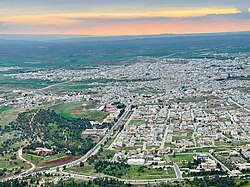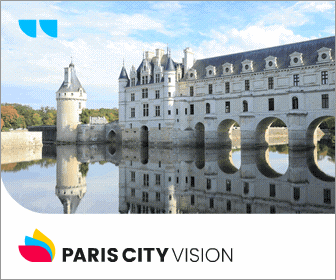
Koy Sanjaq
Koy Sanjaq
کۆیە Koye | |
|---|---|
Town | |
 | |
| Coordinates: 36°04′59″N 44°37′47″E / 36.08306°N 44.62972°E | |
| Country | |
| Region | Kurdistan Region |
| Governorate | Erbil Governorate |
| District | Koy Sinjaq District |
| Area | |
| • Total | 2,050 km2 (790 sq mi) |
| Population (2013)[1] | |
| • Total | 21,026 |
| Time zone | UTC+3 |
Koy Sanjaq[nb 1], also called Koye (Kurdish: کۆیە, romanized: Koye,[2][3] Arabic: كويسنجق,[4] Hebrew: כוי סנג’ק,[5] Syriac: ܟܘܝܐ)[6] is a town and district in Erbil Governorate in Kurdistan Region, Iraq. In the town, there is a Chaldean Catholic church of Mar Yousif, constructed in 1923.[6]

Etymology
The name of the town is derived from "köy" ("village" in Turkish) and "sanjaq" ("flag" in Turkish), and thus Koy Sanjaq translates to "village of the flag".[7]

History
According to local tradition, Koy Sanjaq was founded by the son of an Ottoman sultan who planted his flag and established a garrison at the site of a seasonal bazaar after having defeated a rebellion at Baghdad, and developed into a town as locals moved to the settlement to provide services to the soldiers.[7] A Jewish community at Koy Sanjaq is first mentioned in the late 18th century, by which time it was already well established.[7] The community had its own graveyard,[5] and spoke both Jewish Neo-Aramaic and Sorani Kurdish.[8] A small Chaldean Catholic community was established in the town in the 19th century.[9] In 1913, 200 Chaldean Catholics populated Koy Sanjaq, and were served by two priests and one functioning church as part of the archdiocese of Kirkuk.[10]

The Iraqi census of 1947 recorded a total population of 8198 people, with 7746 Muslims, 268 Jews, and 184 Christians.[11]

80-100 Jews from the village of Betwata took refuge in the town for several months in 1950, increasing the size of the local community to 350-400 people. The Jews of Koy Sanjaq immigrated to Israel the following year.[11]

Koy Sanjaq had a population of 10,379 in 1965.[1] In 1994, the town was struck by Iranian airstrikes targeting the Kurdistan Democratic Party (KDP) base, resulting in the death of a civilian and wounding three KDP militants.[12] In 1999, Assyrians from the nearby village of Armota protested the construction of a mosque in their village at Koy Sanjaq.[13] Koya University was established in 2003.[14]

35 displaced Assyrian families from Mosul were housed in a converted church building in the town in November 2014, and had not been rehoused as of April 2015.[15] As of March 2018, 60 Assyrian families inhabit Koy Sanjaq.[16] The Assyrian population largely speak Kurdish, but some continue to speak Syriac.[17]

An Iranian missile attack on the Democratic Party of Iranian Kurdistan headquarters in the town on 8 September 2018 killed 14 people.[18]

Notable people
- Haji Qadir Koyi (1817–1897), Kurdish poet
- Dildar (1918–1948), Kurdish poet
- Tahir Tewfiq (1922–1987), Kurdish musician
- Fuad Masum (b. 1938), Kurdish politician and President of Iraq (2014–2018)
- Rounak Abdulwahid Mustafa (1942–2023) First Lady of Iraq (2014–2018), wife of Fuad Masum
- Aras Koyi (b. 1972), Kurdish musician
See also
References
Notes

Citations

- ^ a b c "Kūsanjaq". World Gazetteer. Archived from the original on 2013-02-09. Retrieved 29 April 2020.
- ^ "The Jerusalem Post: Êrişa Îranê ya li Koye peyamek e ji bo Amerîka, Erebistan û Îsraîlê". Rudaw Media Network (in Kurdish). 10 September 2018. Retrieved 19 December 2019.
- ^ "ڕێگای کۆیە - تەقتەق دادەخرێت". Basnews (in Kurdish). 19 December 2019. Retrieved 19 December 2019.
- ^ "كويسنجق". Ishtar TV (in Arabic). Retrieved 29 April 2020.
- ^ a b "Cemetery, Koi Senjaq (Koy Sinjaq), Iraq". Diarna: The Geo-Museum of North African and Middle Eastern Jewish Life. Retrieved 29 April 2020.
- ^ a b "Koysenjaq". Ishtar TV. 20 December 2012. Retrieved 29 April 2020.
- ^ a b c Mutzafi (2004), pp. 1–2.
- ^ Mutzafi (2004), p. 5.
- ^ Wilmshurst (2000), p. 127.
- ^ Wilmshurst (2000), p. 176.
- ^ a b Mutzafi (2004), p. 1.
- ^ "Iranian Jets Bomb Kurdish Base in Iraq, Killing 1 and Hurting 3". New York Times. 10 November 1994. Retrieved 29 April 2020.
- ^ Lalik (2018), pp. 236–237.
- ^ "The University". Koya University. Retrieved 29 April 2020.
- ^ "Displaced Christian families in Koya appeal not to be forgotten". World Vision International. 15 April 2015. Retrieved 29 April 2020.
- ^ "Churches in Koya don't meet needs of Kurdistan's Christians". Rudaw Media Network. 13 March 2018. Retrieved 29 April 2020.
- ^ Lalik (2018), pp. 235–236.
- ^ "Iran rockets Kurdish parties' headquarters in Kurdistan Region's Koya". Rudaw Media Network. 8 September 2018. Retrieved 29 April 2020.
Bibliography
- Lalik, Krzysztof (2018). "Ethnic and Religious Factors of Chaldo-Assyrian Identity in an Interface with the Kurds in Iraqi Kurdistan". In Joanna Bocheńska (ed.). Rediscovering Kurdistan's Cultures and Identities: The Call of the Cricket. Springer.
- Mutzafi, Hezy (2004). The Jewish Neo-Aramaic Dialect of Koy Sanjaq (Iraqi Kurdistan). Otto Harrassowitz Verlag.
- Wilmshurst, David (2000). The Ecclesiastical Organisation of the Church of the East, 1318–1913. Peeters Publishers.
36°05′N 44°38′E / 36.083°N 44.633°E


See what we do next...
OR
By submitting your email or phone number, you're giving mschf permission to send you email and/or recurring marketing texts. Data rates may apply. Text stop to cancel, help for help.
Success: You're subscribed now !

